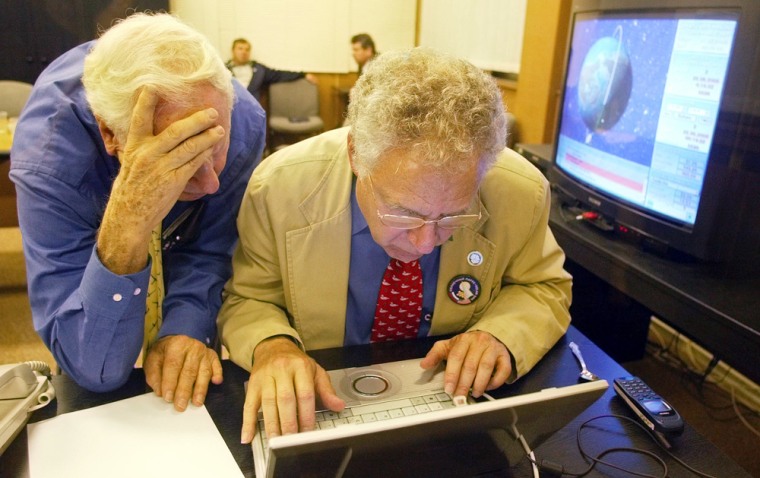Officials in charge of the Russian rocket that failed during launch of a spacecraft carrying a solar sail believe that the booster’s stages never separated, the project director said in a statement.
The officials believe the rocket went down near Novaya Zemlya, an archipelago that separates the Barents Sea from the Kara Sea, Louis Friedman said in a statement from Moscow posted on the Web site of The Planetary Society, the Pasadena-based organization behind the $4 million experiment.
The three-stage Volna rocket, a converted missile, was launched by a Russian submarine under the Barents Sea on Tuesday. Russian authorities have said the booster failed during the first-stage firing, 83 seconds into flight, but there were no details on what the failure entailed.
The Cosmos 1 spacecraft carried eight Mylar thin-film sails that were to be unfolded in orbit to try to demonstrate that a spacecraft could be propelled by the pressure of sunlight.
Although Russian officials said the first-stage failure prevented Cosmos 1 from reaching orbit, tracking stations at several points around the globe recorded weak signals that Planetary Society team members said seemed to have come from Cosmos 1, suggesting it somehow reached space but was in the wrong orbit.
Mission officials gave that a very low probability, but were continuing to analyze the tracking station data.
“We are hopeful of having more definitive results from their analysis in the next few days,” Friedman wrote in the statement.
Friedman is executive director of The Planetary Society, which he co-founded in 1980 with the late astronomer Carl Sagan and former Jet Propulsion Laboratory director Bruce Murray. The space-interest group says it has members in 125 countries.
